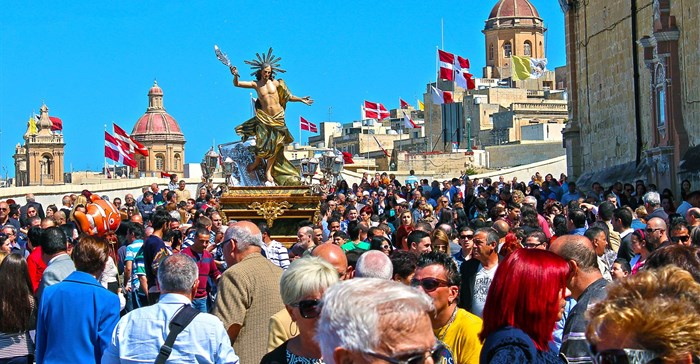Although newsrooms are reporting at the sharp end of the wedge this month regarding Theresa May's epoch-making battles, other intriguing angles are developing at the story's ever-widening circumference. Amongst them, applications for Maltese citizenship filed by British nationals have almost doubled in number since the 2016 Brexit vote.
Government data shows a total of 619 applications for citizenship by naturalisation were received last year, compared to 382 in 2016. The upward trend continued this year, with 704 UK nationals applying to become Maltese citizens in the first 10 months.
Such citizenship applications were distinct from those filed under the Individual Investors’ Programme (IIP) and neither were they for residence permits or visas, a spokesman for the office of the Prime Minister said. Applicants qualified for such citizenship either through a familial connection or after having resided in Malta for several years, he added.
Brexit effect
The Brexit effect on citizenship applications is evident when pre-2016 figures are considered. Applications for citizenship from UK nationals numbered 203 in 2013, dropping to 152 in 2014 and rising to 199 the following year.
A total of 1,715 applications from UK nationals were approved since 2013, the spokesman said.
In the June 23, 2016 referendum, the British voted to withdraw from the European Union. Months later, the UK government began the formal process to exit the EU. As a result, British citizens risk losing the right to free movement across EU member states, apart from a raft of social rights they are entitled to as EU members.
Last September, practically all EU leaders, including Maltese Prime Minister Joseph Muscat, had called for a second referendum on Brexit but Ms May ruled out the possibility.
Brexodus
Malta, which was a former British colony until Independence in 1964, is not the only EU member state to witness an increase in citizenship applications following the Brexit vote.
According to the Independent of London, Eurostat figures show that 6,555 British nationals acquired citizenship of another EU member state in 2016, up from 2,478 the previous year.
Interestingly, Germany was the Britons’ preferred choice, attracting 2,702 UK nationals. France and Belgium followed with 517 and 506 citizens each, the Independent reported. Considering the respective Maltese and French land mass and population sizes, Malta’s 382 applications stack quite high against France’s 517 applications in 2016.
A spokesman for the pro-EU Best for Britain campaign had dubbed the flurry of applications “a Brexodus”.
Island saturation
The evident Maltese obsession with counting population numbers has a particular sense of environmental and social gravitas when your island is as small as Malta is as it raises the question – at what point do we reach saturation?
Read: Population growth - is Malta reaching the limit?
Against this sensitivity, eyebrows were raised in media circles this month when the National Statistics Office revised its 2016 populations numbers upwards by 20,000 inhabitants claiming a change in methodology.
The significant demographic change was attributed to “methodological improvements” which in turn led to a revision of the migration flow data for European Union and third-country nationals for the period between 2012 and 2016.
Furthermore, the overall population by the end of last year stood at 475,701 – a rise of 35,268 in just 12 months when compared to the original figure of 2016.
Migration flows
The office noted that it used a census-based approach whereby annual estimates of natural increase and migration flows were added to the previous year’s data in order to provide estimates of total population counts. The methodology used was in line with the 2013 European Regulation on Demographic Statistics.
“In absence of a national population register, this is the method currently available to the NSO to reliably calculate annual population estimates using a harmonised methodology which leads to comparable results across the EU,” a spokeswoman said.
Read: Population growth 15 times over EU average
“The sudden increase in net migration observed after the 2011 Census differed from the trends previously seen between censuses, therefore this trend could not have been predicted basing on the assumptions of past migration trends,” the office pointed out.
While noting that it continuously tried to improve its methods and the quality of estimates, the NSO said that “unfortunately, revisions were very often a result of significant improvements in statistical methodologies, and cannot be avoided”.





























![Today, Halo and Demographica announce a new specialist agency, Second Rodeo]], headed up by Mike Stopforth (left). Dean Oelschig, managing partner and founder of Halo (right) says they will work as a group but ultimately, each agency will be an individual specialist](https://biz-file.com/c/2505/772543-64x64.jpg?2)





